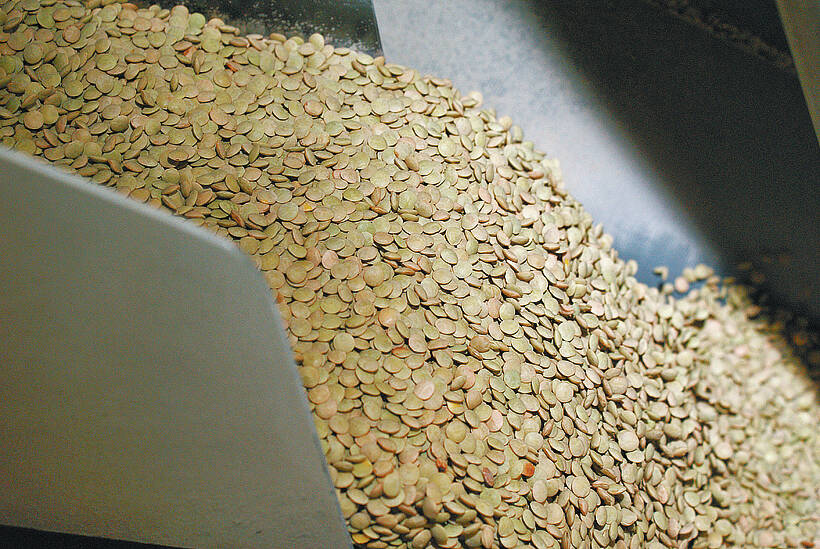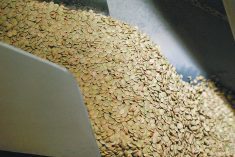There are few things in farming as satisfying and comforting as a signed contract with a major grain company that locks in a premium for a specialized product. How could you hedge your crop better than that?Perhaps that’s why farmers have been so outraged at the failure of Louis Dreyfus Canada to accept delivery of all the contracted Nexera canola that farmers expected to start delivering last fall. Farmers don’t seem to be furious because they’re losing money in the situation – the grain company is paying for storage – but because it has drastically disrupted their cash flow and business management plans. The situation is a lesson for farmers about how to integrate supposedly safe contracts into their marketing plans, and a lesson for the rest of the industry about how important it is to keep up with farms’ quick evolution into sophisticated enterprises.”There’s a lot of financial analysis and planning that’s going into the seller’s marketing process,” said farmer adviser Brenda Tjaden Lepp, co-founder of FarmLink Marketing Solutions.”It’s a demographic shift, and the bigger companies aren’t appreciating how far it has gone.”Tjaden Lepp said progressive farmers no longer sit back over the winter and await calls from grain companies or the Canadian Wheat Board for their crops, nor do they just load their trucks and dump their crops into the elevator system whenever a bill comes due.Many are now planning months or a year in advance to match their sales and cash flow to their optimal spending needs and have little room for significant delivery disruptions, especially when those disruptions come from “blue chip” buyers like a multinational grain company.”The whole industry needs to get educated because the farmer is not a hayseed staring at rainbows who doesn’t know what his contract says,” Tjaden Lepp said.I spoke last week to a number of farm marketing experts and came out with three simple lessons from this situation:* don’t put all your eggs in one marketing basket;* find out before you sign the contract what happens if the buyer doesn’t meet his delivery obligations;* understand that the best laid plans of mice and men oft go awry, and don’t place too much confidence in any marketing plan.”Build a bit of flexibility,” said Charlie Pearson of Alberta Agriculture. Having all your canola acreage signed to one contract with one buyer makes any problem a big one for most farms.”A couple or three (contracts with different buyers) would be an alternative,” Pearson said.Also, don’t assume that sales will occur when you expect them to, and don’t let your obligations catch up to your money flow.”Lots of guys rely on sales to make bill payments,” Pearson said. “Build some flexibility into your marketing plan so that you’re not 100 percent reliant on one contract.”Graham Gilchrist, the farmers’ advocate in Alberta, said buyers may be legally liable for fulfilling their contract terms, but the bottom line for farmers is that no one other than the farmer is responsible for meeting the farm’s cash flow needs.”The cash flow risk is solely the responsibility of the producer,” he said.”Whether you face labour problems (in the grain transportation industry), delays in parts or difficulty with delivery times and points, you shouldn’t assume everything is going to work out.”Contracts are legally binding, but launching a lawsuit is expensive, costly and time-consuming and often brings little relief. Farmers need to understand the contracts they have signed but also understand they are often in a weak position to force their rights to be recognized.”It’s a bit of a buyer’s market out there,” Gilchrist said.”I’m pleasantly surprised that Louis Dreyfus has stepped up to the plate (with storage payments) because I’ve seen oats and malting barley contracts (where the buyer just walks away).”Tjaden Lepp said this situation is frustrating because she counsels her clients to always honour contracts.”We try to position our clients as being a good source of origination for the industry. These are people who will honour their commitments,” she said. “We want to honour our side of the contract, so it’s a bit baffling that they don’t have to.”
Read Also

Green lentil market oversupplied
Farmers in Western Canada can expect price pressure on their new crop of green lentils, as the available supplies among the world’s major lentil-growing nations increase significantly.















